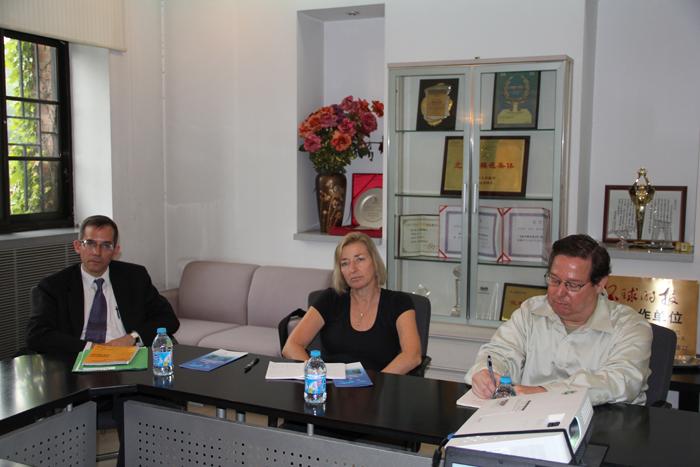Veteran American news correspondent and journalism professor Mike Chinoy told a group of students at Tsinghua University that China has undergone “very profound changes” since he first visited the campus in 1973.
“It’s vastly more open. It’s vastly more modern,” said Chinoy, a longtime CNN correspondent who now is a Senior Fellow at the University of Southern California's US-China Institute.
Chinoy, who won numerous journalism awards for his work as CNN’s Beijing bureau chief, showed a group of Global Business Journalism program and other international journalism students one episode from his ten-part documentary on American news coverage of China from the 1940s to the present.
During his Sept. 17 appearance in Professor Hang Min’s Global Business Journalism course, he explained how American reporters tried to cover China for 25 years when officials in Washington or Beijing did not want to grant them access to the mainland. The film, which used historical newsreel video and interviews with longtime China correspondents, also documented the political pressures in the United States to present China in a critical light, such as renaming a 1967 CBS documentary “Morley Safer’s Red China Diary” instead of “China Diary.”
Chinoy said U.S. media coverage of China has gone through “giant swings” from positive to negative coverage. He told the students that the two countries had emerged from a “great period of suspicion” to have a more open relationship now.
Chinoy served 24 years as a foreign correspondent for CNN, including stints as a roving reporter based in London, bureau chief in Beijing and Hong Kong, and senior Asia correspondent. He previously worked for CBS News and NBC News in Hong Kong in the 1970s and is the author of two books on China and North Korea.
Chinoy told the students of his first visit to the Tsinghua campus in 1973, in the aftermath of the Cultural Revolution.
“To come back here 40 years later is a very special honor to me,” Chinoy said, describing the modern campus and regular exchange of ideas as “unrecognizable from when I first came to Tsinghua.”
He said China was moving toward greater openness, even though it is “a continual tension-filled process.”
“It’s deeply meaningful and very worth carrying on,” he said.
After meeting with the students, Chinoy attended a lunch with Professors Shi Anbin, Associate Dean of International Development, Rick Dunham, co-director of the Global Business Journalism program, and Jane Sasseen, a visiting professor and former editor at Business Week and Yahoo News. Chinoy welcomed the opportunity to get feedback from Tsinghua students and discussed the challenges he has encountered in putting the documentary series together.


